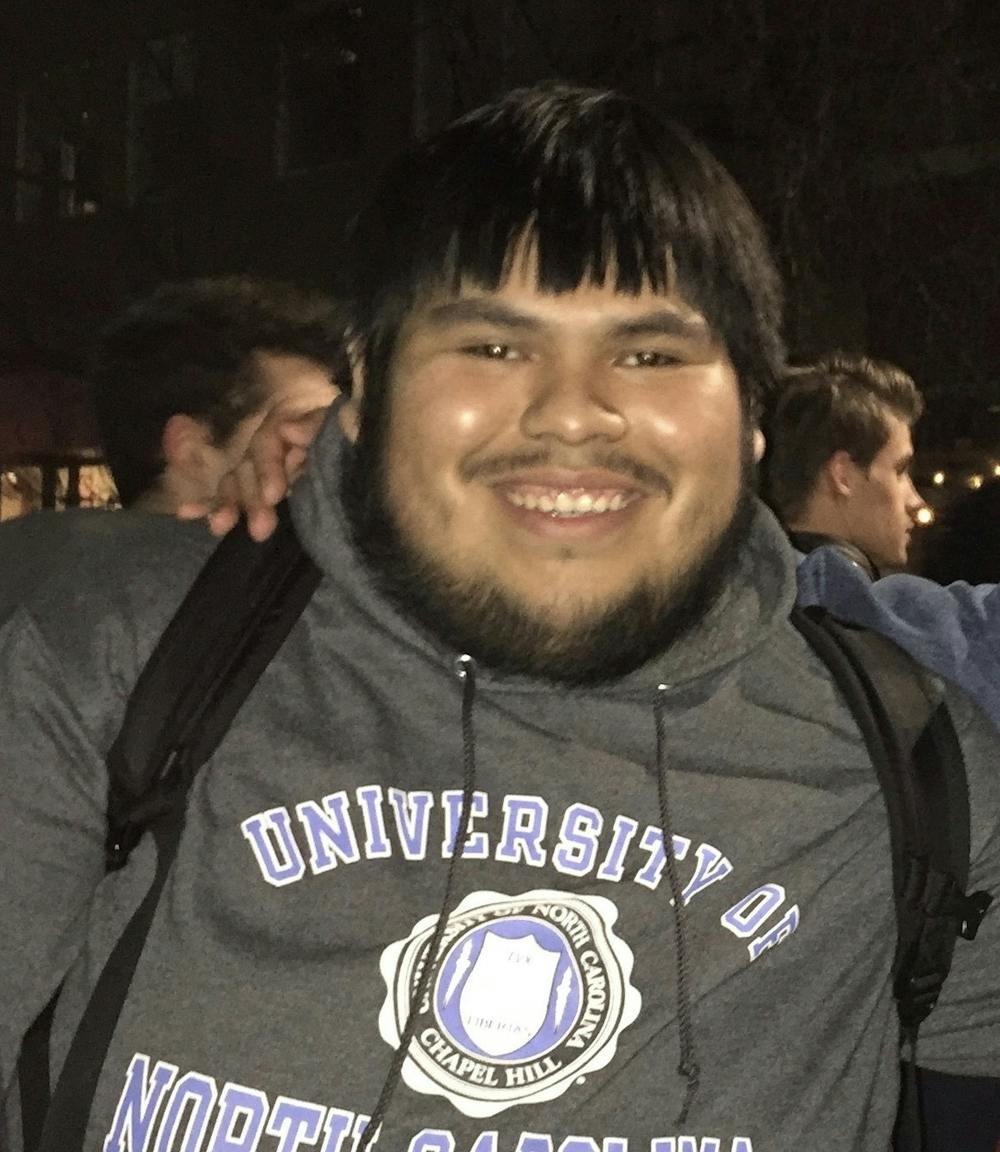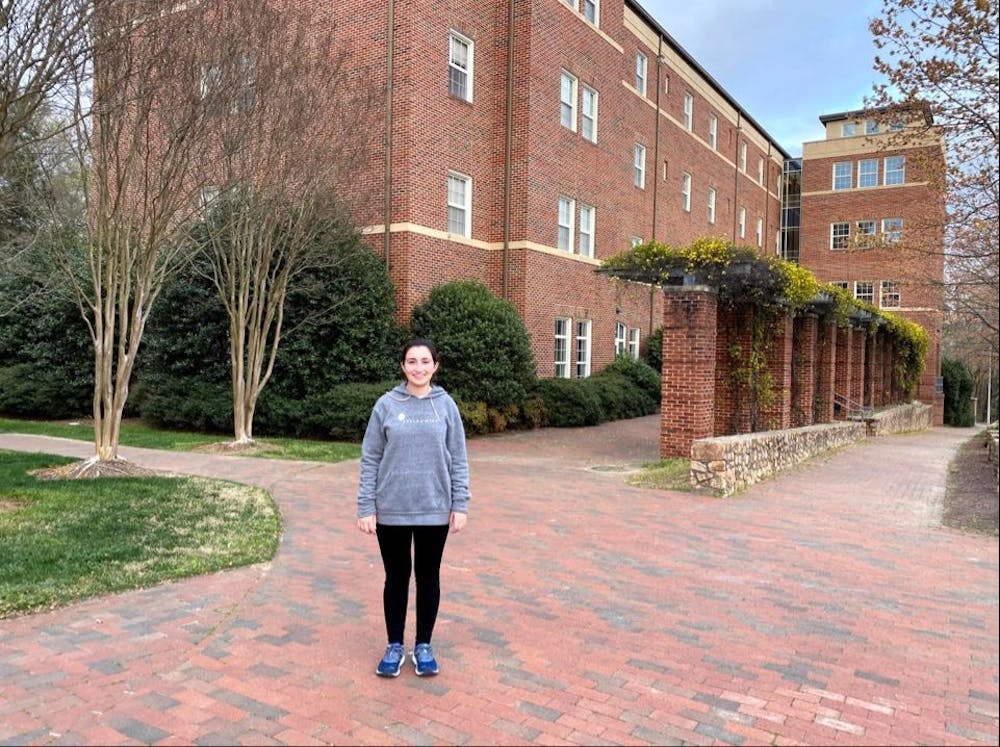“Part of me doesn’t really know what to choose if they do offer remote (instruction) because it is a dramatic arts class and part of the curriculum is having that face-to-face communication,” Montalvo said.
Rising junior Kayla Pope said she may transfer to part-time classroom studies (PTCS) if she cannot switch into all remote classes. Pope said she has dealt with psychological and physical health issues for many years.
PTCS allows UNC students to continue pursuing their degree on campus on a part-time basis; students can take up to 8 hours of classes in a semester.
“Most of my classes which I could take for my majors or minors, given that I don’t have many credits left to do, are full,” said Pope, a public policy and interdisciplinary studies major. “And the waitlists are like 15 people and they’re all full, so I don’t think, unless capacity is increased, that it would be possible to get all remote courses.”
Pope said that when she emailed a professor of one of her in-person classes about attending remotely, the professor replied that they would likely be unable to provide a remote option for their course, due to technical limitations.
The professor also provided Pope with information they'd received regarding students with medical reasons who choose not to come to campus, stating that students who experience medical or other problems after the start of the semester could seek accommodation. The affected student would have to work with the instructor to complete the course.
Pope said that she worries that this will place extra stress on students who may contract COVID-19.
“They’re saying that students and professors will have to work together if someone gets sick, and then has to be remote," she said. "Which I think would be quite a big burden on someone who is already sick."
In an email to The Daily Tar Heel via UNC Media Relations, Director of Accessibility Resources and Service Tiffany Bailey said that students with “documented disabilities or medical conditions, which may include conditions that place them in high-risk categories” should work with the Office of Accessibility Resources and Service to request COVID-19 accommodations.
“ARS is currently coordinating with the Office of the University Registrar to determine if a priority registration appointment can be implemented as an accommodation for ARS-connected students to address the impact of a disability or medical condition,” the email said.
Bailey said that ARS will work with instructors to determine if a COVID-19-related accommodation is reasonable and to implement approved accommodations.
"ARS will work with instructors to determine if an accommodation is reasonable and does not fundamentally alter the nature, structure and/or planned learning objectives of the course," Bailey said in the email.
To get the day's news and headlines in your inbox each morning, sign up for our email newsletters.
Some students are concerned about the behavior of their classmates influencing their risk of contracting COVID-19.
Rina Deka, a rising senior majoring in mathematics, is immunocompromised. She worries about whether the University can ensure that students abide by CDC guidelines, pointing to Greek Life and undergraduate party culture.
“We haven’t been able to flatten the curve,” Deka said. “If anything, we’re experiencing the opposite, so it definitely does make me nervous to come back to campus. The semester hasn’t even started and it’s already kind of falling apart.”
As of Sunday, at least 37 student-athletes, coaches and Carolina Athletics staff members had tested positive for COVID-19 on UNC’s campus.
If she can’t take remote-only courses, Deka said, she’d consider taking a semester off.
Montalvo and Pope, who both said they have family members who are high risk for contracting COVID-19, echoed the worry that students wouldn’t take social distancing and other measures seriously.
“I think that they’re putting a lot more faith than they should into college students,” Pope said. “I personally know a ton of people who tested positive for COVID-19 from going to Might As Well last week.”
Having a full docket of remote classes worries some students, like rising sophomore Maya Tadross, a psychology major. Tadross said that she’s afraid that daily isolation will exacerbate her OCD, anxiety and depression.
Additionally, Tadross expressed concerns over the University’s ability to handle an outbreak.
Currently, UNC plans to house residential students exposed to the coronavirus, but without a confirmed diagnosis, in Craige North Residence Hall. Residential students with confirmed COVID-19 diagnoses will be housed in Parker Residence Hall.
“I’m not sure if the dorms can handle that amount of people,” Tadross said. “Also, I’m also afraid that if I do get exposed, I’m going to have to be quarantined in a room for two weeks, and I feel like that would be really bad for my anxiety and depression.”
All four students said they hope the University will do more to ensure the safety and well-being of its student body.
“They could be doing more for us, just because this isn’t a simple inconvenience,” Montalvo said. “These are our lives on the line, and at the end of the day, we could very well die. It seems a little weird, just because ever since March, I’ve been cautious. I don’t go out for anything, except to pick up groceries, and now I’m put in a situation where I have to choose between my life and my education.”
@seaynthia
university@dailytarheel.com




